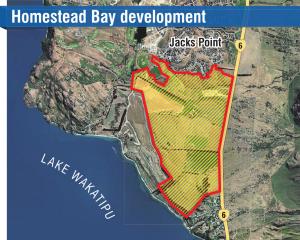
The university’s lawyers said in court a person came on to the campus asking to speak to Wiles this morning.
A university spokeswoman said campus security were called at 8.10am after a man entered a university building asking after the scientist. He was not located by security staff or on CCTV.
The spokeswoman said no threats were made but security was briefed in case he returned and police were advised. Wiles and her lawyer were also notified.
It occurred as Wiles, a microbiologist and science communicator, takes on the university at the Employment Court in Auckland. She has argued the institution’s leaders failed to protect her from threats which followed her commentary on Covid-19 and vaccination.
The university’s legal team revealed the incident while discussing a media application this morning.
Lawyer Philip Skelton, KC, opposed an application by state broadcaster RNZ to record the hearing on the grounds it could “re-trigger” abuse against Wiles, citing this morning’s event at the university.
Granting the media application could “create a health and safety risk”, he said, “which is what everyone is trying to avoid”.
Lawyer Catherine Stewart, after consulting Wiles, said her client did not object to the media application. She said the defence’s argument - that minimising coverage would reduce harassment against her - was a “fallacy”.
“Raising public awareness ultimately leads to better health outcomes,” Stewart said, adding that her client supported open justice.
Judge Joanna Holden granted the media application, saying the “horse had bolted” and “it seems a bit pointless to restrict media at this stage”.
Several media organisations, including the Herald, covered the first day of the hearing yesterday. Media do not require permission to cover the case, but must get approval to record audio, video or photographs.
The university, which denies it has breached its statutory obligations, began its cross-examination of Wiles this afternoon.
Its lawyers argued academic freedom was not “unfettered” and had to be balanced by the university against other responsibilities like health and safety.
Wiles yesterday said the university did not immediately respond to her complaints about harassment and instead “victim-blamed her” by telling her to reduce media appearances to protect herself.
Skelton challenged Wiles on her accusation that she was silenced by the university, saying she had given “thousands” of interviews on Covid.
Wiles said she was defying the university in giving these interviews, and many of them were done before she was told to “pull back” from the spotlight by the university’s HR staff.
Skelton said Wiles was never directly instructed to stop her media commentary and was regularly praised for her work by university leaders.
“When your vice-chancellor urges you not to do something, it certainly [feels] like an instruction,” Wiles responded.
Skelton cited several examples of senior university leaders praising Wiles for her public commentary on the pandemic.
“It was certainly taking credit for it,” Wiles responded.
“That’s one way of looking at it,” Skelton said.
“You will have to excuse me if I’m not feeling very charitable,” Wiles said.
The university’s legal team also questioned Wiles about academic freedom and when it was reasonable to limit this freedom.
“The university’s case is that as an employer it must balance academic freedom against the other legal duties it owes to employees - one of which is taking all steps to keep employees safe,” Skelton said.
He also suggested Wiles had herself sought some limits on academic freedom when she criticised colleague and epidemiologist Simon Thornley - who made controversial comments about Covid-19 during the pandemic.
“That is a gross misjudgement,” Wiles said, her voice rising. “I don’t think I was asking at any stage for him to be silenced - I was asking, ‘How do we deal with this, when an academic does not have the evidence base?’”
The hearing is expected to take three weeks.












